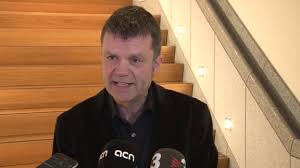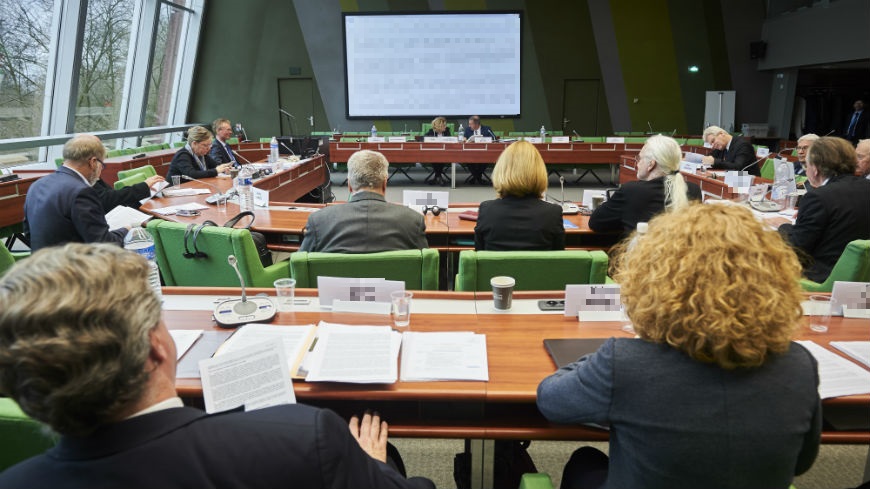The European Language Equality Network has called for closer cooperation between the NGOs and governments to help the Charter implementation process. ELEN Secretary-General Davyth Hicks was in Strasbourg on November 21st for the 58th Plenary meeting of the European Charter for Regional or Minority Languages (ECRML) Committee of Experts (COMEX), on the 25th anniversary of the Charter, to discuss a whole range of issues affecting the Charter, in particular Charter implementation and delayed State reporting.
Dr Hicks underlined the urgent need for more Charter ratifications and outlined the work that ELEN was doing towards a French, Italian and Greek ratification. He discussed the issue of State party Charter ‘fatigue’ regarding the three-yearly cycle of reporting and where only two signatory states are up to date. He described the negative and demoralising impact that late reporting has on the language community where violations are reported but where no progress is made as the State is often a few year’s late in reporting. In many cases it marks a real lack of progress especially when, under the Charter, provision for languages is meant to improve over time. Several ELEN member languages are defined as endangered, he added, and they need to have problems solved urgently.

ELEN Secretary-General Davyth Hicks.
Some specific problems were discussed including the Spanish Government’s practice of systematically removing criticism of it by the Catalan Government in its reporting to the ECRML Secretariat, with the result that the Catalan Government now sends its own report directly to the ECRML. In addition, Dr Hicks talked about various concerns regarding the UK’s ratification including the cut in Government funding for Welsh language TV, the lack of a promised Irish language act impacting on Irish regeneration, and the complete lack of any support for Cornish.
In terms of how ELEN members can help with Charter implementation, Dr Hicks outlined a number of activities that ELEN has undertaken such as training members on how to input effectively into the reporting process and in compiling shadow reports.
The Donostia Protocol, a key ELEN project, was also discussed with the Committee. It was written with contributions from NGOs representing all of Europe’s regional or minority languages, and sets the standard on ensuring language rights. It acts to complement the ECRML with ELEN members currently working to have it implemented.
ELEN proposals to improve on ECRML implementation, while welcoming the Secretariat’s regular input at ELEN meetings, included having more Secretariat and COMEX outreach to RML communities; opening a reporting hotline for serious violations of the Charter, similar to how racist attacks are dealt with; upgrading the Charter itself with reference to the standards set out in the Donostia Protocol; and also to take account of new digital developments where public service provision is increasingly online only, and the emerging ‘digital divide’ where many lesser-used languages are being left behind digitally thus further threatening them.
COMEX, led by Ms Vesna Crnić Grotić, welcomed the comments from ELEN which will feed into their discussions on the Charter, and looked forward to continuing to work closely with ELEN.

